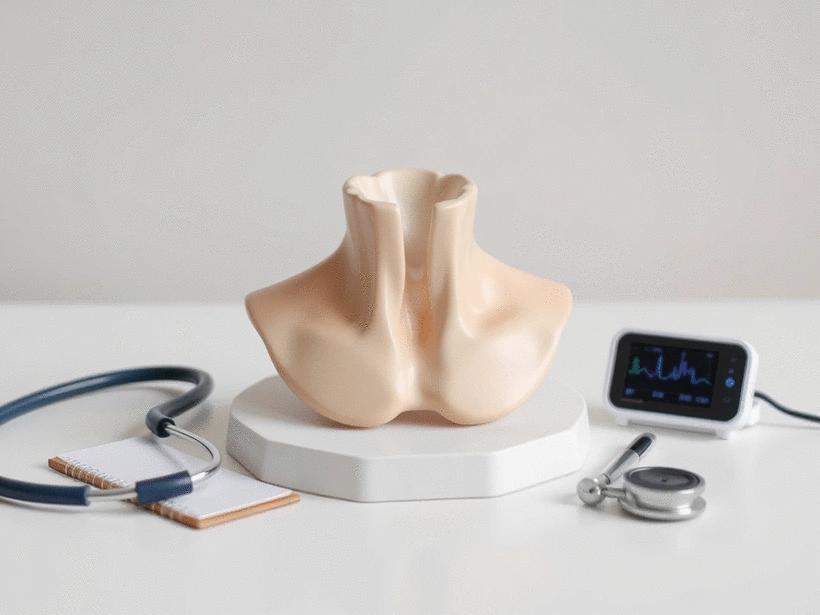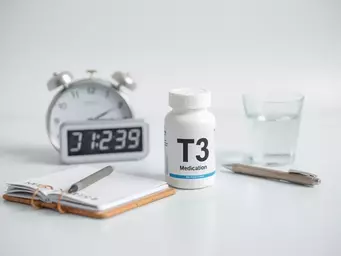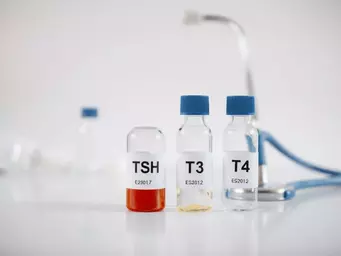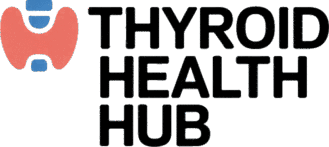Hypothyroidism Symptoms: Men vs. Women

What if the key to unlocking your energy and well-being lies within a small gland in your neck? Understanding hypothyroidism can empower you to take control of your health. This condition, where the thyroid gland underperforms, can manifest in various symptoms that might affect your daily life. Curious about how it impacts you or someone close? Let’s dive into the essential insights on hypothyroidism.
What You Will Learn
- Hypothyroidism affects approximately 4.6% of the U.S. population, with women at a significantly higher risk than men.
- Common symptoms include fatigue, weight gain, cold intolerance, and cognitive changes, all of which can severely impact quality of life.
- Early recognition of symptoms is crucial; symptoms can vary between genders, highlighting the importance of personalized treatment plans.
- Regular monitoring of thyroid function, through tests like TSH and levothyroxine therapy, is vital for effective management of the condition.
Hypothyroidism: Prevalence and Gender-Specific Symptoms
This visual highlights the prevalence of hypothyroidism in the U.S. population and contrasts its gender-specific symptoms.
Prevalence of Hypothyroidism
4.6%
U.S. Population Affected
- Women: 5-8x more likely than men
- Age: Older adults at higher risk
- Risk Factors: Family history, autoimmune diseases
*Women aged 30-60 are especially vulnerable.
Gender-Specific Symptoms
Women
- Menstrual irregularities
- Fertility issues
- Anxiety & depression
Men
- Low libido
- Erectile dysfunction
- Memory loss
Both genders may experience fatigue, weight gain, and skin/hair changes.
Understanding Hypothyroidism: Defining the Condition and Its Impact
Understanding hypothyroidism can feel overwhelming, but I’m here to guide you through it. Hypothyroidism is a condition where the thyroid gland does not produce enough thyroid hormones, leading to a variety of health issues. This can affect not just your energy levels but your overall well-being too! It’s essential to recognize the signs and understand its impact to take proactive steps towards better health.
So, what exactly does this condition mean for your body? When your thyroid is underactive, it disrupts your metabolic processes. You might experience fatigue, weight gain, or even mood changes. Wondering if you experience any of these symptoms? Let’s unpack how hypothyroidism manifests in daily life. For more detailed information, you can refer to resources from the National Institute of Diabetes and Digestive and Kidney Diseases (NIDDK).

What is Hypothyroidism and How Does It Manifest?
Hypothyroidism occurs when your thyroid gland, located in your neck, fails to produce sufficient hormones like thyroxine (T4) and triiodothyronine (T3). These hormones play a crucial role in regulating your metabolism. Common symptoms include:
- Fatigue and weakness
- Weight gain without a change in diet
- Cold intolerance
- Dry skin and hair
- Depression and cognitive changes
Recognizing these symptoms early can make a significant difference in managing the condition effectively. Have you noticed any of these signs in yourself or someone close to you? It’s worth a conversation with your healthcare provider!
Prevalence of Hypothyroidism: Who Is Affected?
Hypothyroidism is more common than many realize! It affects about 4.6% of the U.S. population, with women being five to eight times more likely to develop it than men. This discrepancy often raises questions about the reasons behind these statistics. Age also plays a role, with older adults, particularly women, at higher risk.
- Women aged 30-60 are especially vulnerable.
- Individuals with a family history of thyroid issues
- People with autoimmune diseases like Hashimoto's thyroiditis
If you belong to one of these groups, staying informed and vigilant about your health is crucial! Understanding who is at risk helps in recognizing the need for regular screenings and discussions with healthcare providers. The American Thyroid Association provides additional valuable insights into the prevalence and risk factors associated with hypothyroidism.
Thyroid Gland Function and Its Role in Metabolism
The thyroid gland serves as your body’s metabolic engine. It regulates how efficiently your body uses energy from the food you consume. When your thyroid isn't functioning properly, the body can’t use energy as it should, leading to symptoms like fatigue and weight gain.
Essential functions impacted by thyroid hormones include:
- Regulating body temperature
- Heart rate and blood pressure
- How your body processes proteins, carbohydrates, and fats
A healthy thyroid is vital for maintaining balance in your body. Are you aware of how your thyroid health might be affecting your metabolism? Taking the time to understand these functions is the first step toward a healthier you!
Quick Summary
Here's a brief recap of the key points discussed so far:
- Hypothyroidism occurs when the thyroid gland does not produce enough hormones, leading to symptoms like fatigue and weight gain.
- It primarily affects women aged 30-60, with a higher prevalence among those with a family history of thyroid issues.
- Understanding the symptoms can lead to early diagnosis and better management of the condition.
Frequently Asked Questions About Hypothyroidism
- What is hypothyroidism?
- Hypothyroidism is a condition where the thyroid gland doesn't produce enough essential hormones, leading to a slowdown in metabolic processes.
- What are the common symptoms of hypothyroidism?
- Common symptoms include fatigue, unexplained weight gain, cold intolerance, dry skin and hair, and cognitive changes such as depression or memory issues.
- Who is most at risk for hypothyroidism?
- Women are 5-8 times more likely to develop hypothyroidism than men, especially those aged 30-60. Individuals with a family history of thyroid problems or autoimmune diseases are also at higher risk.
- How does hypothyroidism affect metabolism?
- The thyroid gland regulates metabolism, so an underactive thyroid disrupts the body's ability to efficiently convert food into energy, leading to symptoms like fatigue and weight gain.
- What is the primary treatment for hypothyroidism?
- The most common treatment is Levothyroxine, a synthetic thyroid hormone taken daily to restore normal hormone levels. Regular monitoring of TSH levels is crucial to ensure correct dosage.
- Are there gender-specific symptoms of hypothyroidism?
- Yes, women may experience menstrual irregularities, fertility issues, anxiety, and depression. Men might experience low libido, erectile dysfunction, and memory loss, in addition to common symptoms like fatigue and weight gain.
Summarizing Key Insights on Hypothyroidism Symptoms
As we wrap up our discussion on hypothyroidism, it’s crucial to highlight how symptoms can vary significantly between genders. Understanding these differences can aid in effective diagnosis and tailored treatment plans. Recognizing symptoms early can lead to better management of this condition, allowing you to regain control over your health.
Here’s a quick recap of the key gender-specific symptoms associated with hypothyroidism:
- Women: Menstrual irregularities, fertility issues, and psychological impacts such as anxiety and depression.
- Men: Low libido, erectile dysfunction, and cognitive issues like memory loss.
Both genders may experience common symptoms such as fatigue, weight gain, and changes in skin texture, but understanding these unique manifestations is vital for accurate diagnosis and treatment.
Final Thoughts on Effective Diagnosis and Treatment Approaches
From my experience as an endocrinologist, I can’t stress enough the importance of recognizing the nuances of hypothyroidism symptoms. Having an open dialogue with your healthcare provider about your specific experiences is essential. This engagement can facilitate a more accurate diagnosis and customized treatment strategy that fits your unique needs.
As you navigate your journey with hypothyroidism, remember that treatment isn’t a one-size-fits-all approach. It's about finding what works best for you, and that often starts with understanding your symptoms and how they relate to your overall health.
Understanding Treatment Options: Levothyroxine and Beyond
Most patients with hypothyroidism benefit from Levothyroxine, a synthetic thyroid hormone that restores hormonal balance in the body. It’s typically the first-line treatment option, but some individuals may require adjustments or alternative therapies. It’s important to regularly monitor your thyroid function through blood tests to ensure the dosage is right for you.
Aside from Levothyroxine, some patients explore natural desiccated thyroid or combination therapies based on their specific symptoms and preferences. Discuss these options with your healthcare provider to understand the best path forward. A recent study published in Frontiers in Endocrinology highlights emerging perspectives on individualized treatment strategies for hypothyroidism. Here are a few treatment considerations:
- Regular monitoring of TSH levels to gauge treatment effectiveness.
- Potential lifestyle changes, such as dietary adjustments rich in iodine and selenium.
- Engagement in supportive communities for shared experiences and encouragement.
By staying informed and proactive, you can navigate your treatment journey with confidence and clarity. At Thyroid Health Hub, we're here to support you in understanding your condition and making informed health choices!

Engaging with Readers: Next Steps for Improved Health Awareness
As you continue on your path towards better thyroid health, I encourage you to take the next steps in your health journey. Self-advocacy is key, and you have the right to seek answers and support as you navigate the complexities of hypothyroidism.
Encouraging Self-Advocacy: When to Seek Medical Advice
If you’re experiencing unexplained symptoms or have concerns about your thyroid health, don’t hesitate to reach out to a healthcare professional. Key indicators that warrant a visit include:
- Persistent fatigue or weakness.
- Unexplained weight changes.
- Changes in mood or cognitive function.
Don’t wait for symptoms to escalate—early intervention can lead to effective management and improved quality of life!
Resources for Further Reading and Support
At Thyroid Health Hub, we provide a wealth of resources designed to empower you on your health journey. Our articles, patient guides, and information on treatment options are all aimed at enhancing your understanding of hypothyroidism.
Additionally, I recommend exploring credible organizations such as the American Thyroid Association and joining support groups where you can connect with others facing similar challenges.
Patient Education and the Importance of Health Care Providers in Management
Lastly, I want to emphasize the role of healthcare providers in managing hypothyroidism. Building a strong relationship with your provider can provide you with the support and guidance necessary to effectively navigate your treatment plan. Remember, your health journey is unique, and being informed is your greatest tool.
Let’s continue to encourage open conversations about thyroid health, and together we can work towards better awareness and management of hypothyroidism!
Recap of Key Points
Here is a quick recap of the important points discussed in the article:
- Hypothyroidism occurs when the thyroid gland does not produce enough hormones, affecting metabolism and overall health.
- Common symptoms include fatigue, weight gain, cold intolerance, dry skin, and mood changes.
- Women, especially those aged 30-60, are at a higher risk of developing hypothyroidism.
- Regular monitoring of thyroid hormone levels is essential for effective management and treatment.
- Engagement in supportive communities and open conversations with healthcare providers can enhance treatment outcomes.









